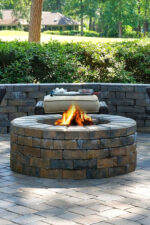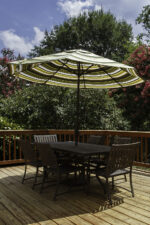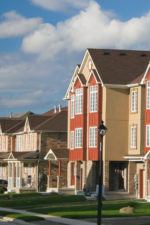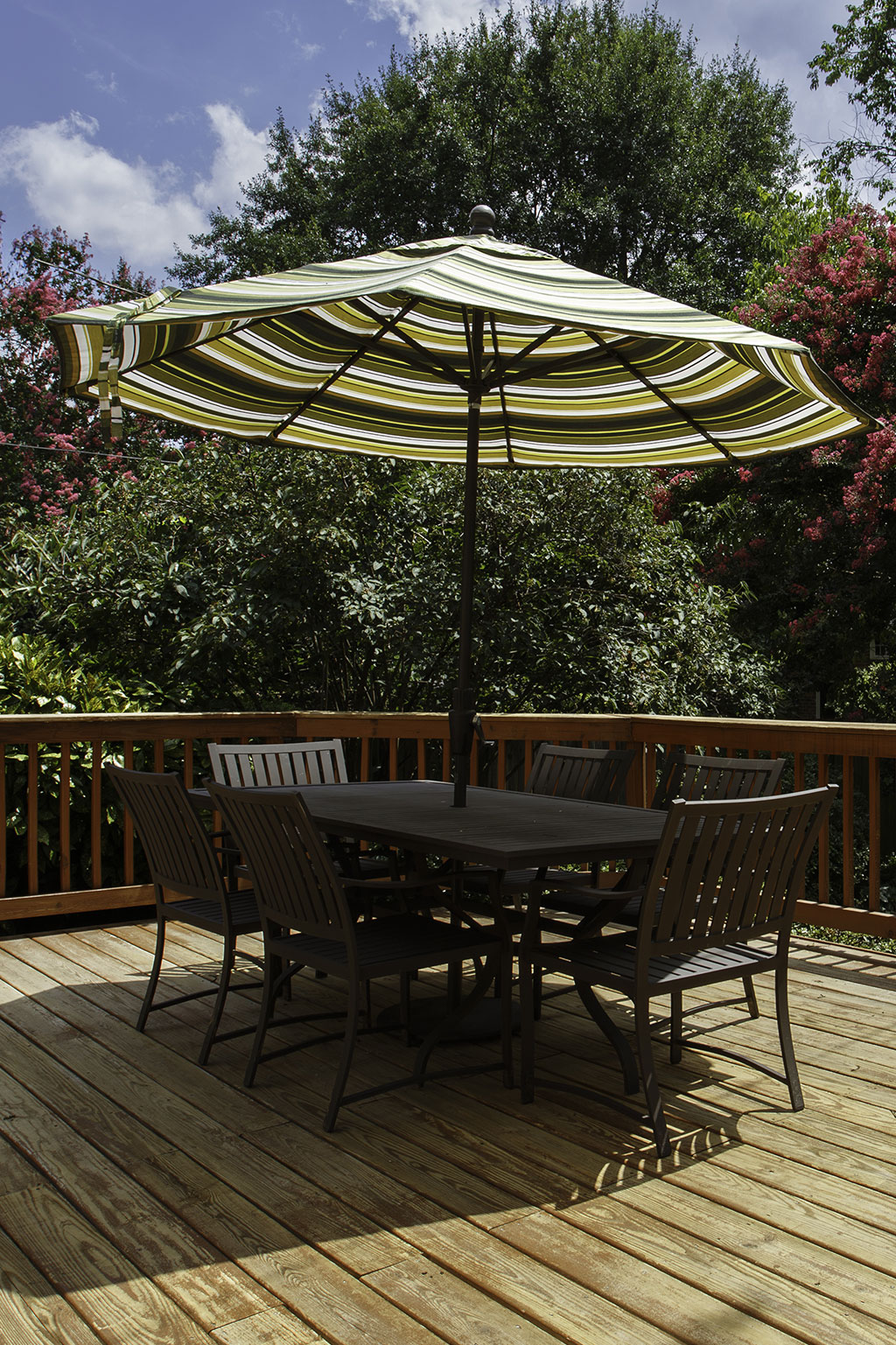An In-Depth Deck Guide
Decks are full of endless potential for fun and relaxation alike—they set the scene for lounging and taking in a cool breeze, looking out proudly over your lush landscaping, firing up the grill with your loved ones, and more.
Further, their eye-catching construction can pull together a beautiful backyard design. If you’re eager to upgrade your property with such a feature, here are the primary factors to weigh along with some creative inspiration you may want to keep on deck.
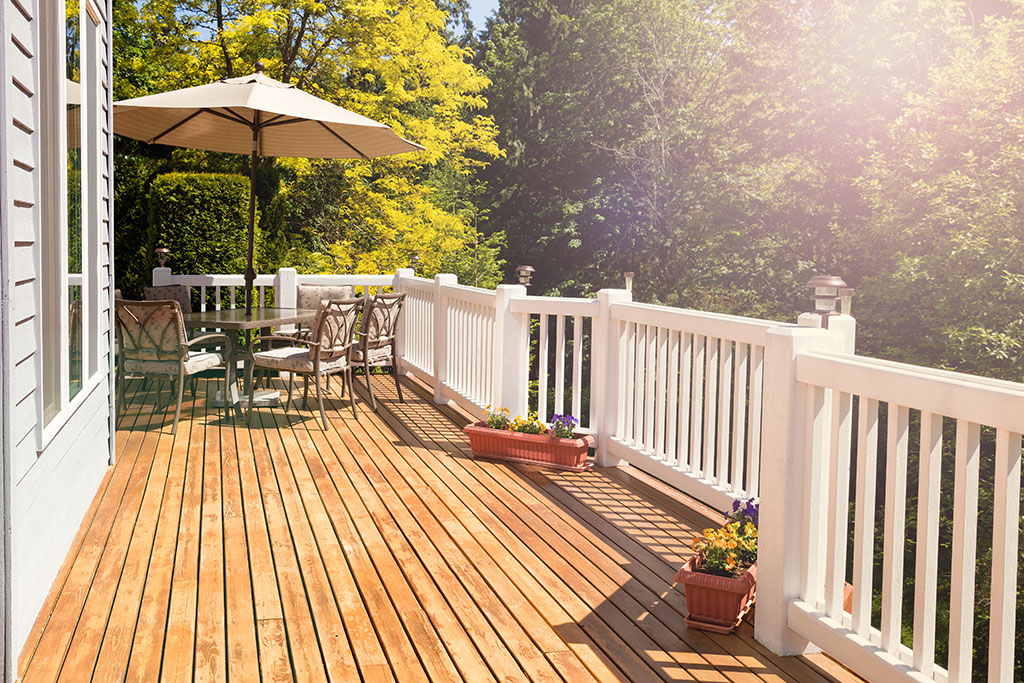
Deconstructing decks
First of all, it’s important to distinguish these surfaces from similar alternatives. Whereas a patio is typically built on the ground, decks utilize vertical joists to elevate them. They also aren’t generally covered, unlike porches and verandas, which are shielded by attached roofs. Though decks are often constructed with wood, they don’t necessarily have to be, and there are many different styles you can choose from. Understanding all these nuances can help you find the proper installation expert and materials for the specific final product you envision.
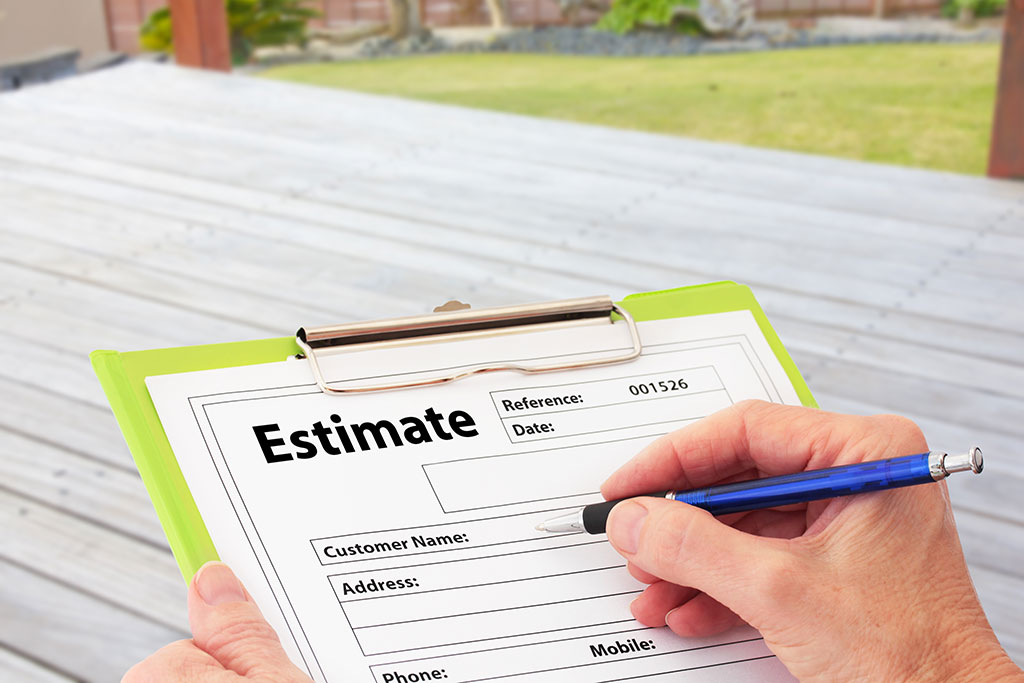
Cost considerations
Of course, you’ll also need to give serious thought to pricing before you proceed. As with any home-improvement project, the total can vary based on the deck’s material and size as well as your location and choice of contractor. That said, according to the household-services directory HomeGuide, you can expect to pay between $25 to $50 per square foot. So if you’re interested in a 12’ x 20’ structure, for example, your final bill may range anywhere from $6,000 to $12,000. Also keep in mind that installing additional elements like a gate or stairs will likely increase this price estimate further.
Make sure to factor in secondary costs as well. For one, obtaining a permit from your local building inspections department may be necessary before installation can begin; this step costs $1,647 on average according to the home-project experts at Angi. That may sound steep, but the penalty for not getting one can be even higher. Moreover, you may need your HOA’s up-front approval for the work to avoid a fine. And other costs may arise after the deck is complete, including future maintenance like resealing and an increase to your monthly home-insurance premiums to cover the addition.
You may assume that you could save on construction, at least, by taking a DIY approach, but the complex framework involved means you could run into expensive issues down the road. Unless you’re experienced with this work, you risk producing lower-quality results that eventually require excessive repair or rebuilding costs and may even be dangerous, making it well worth the investment to rely on a professional.
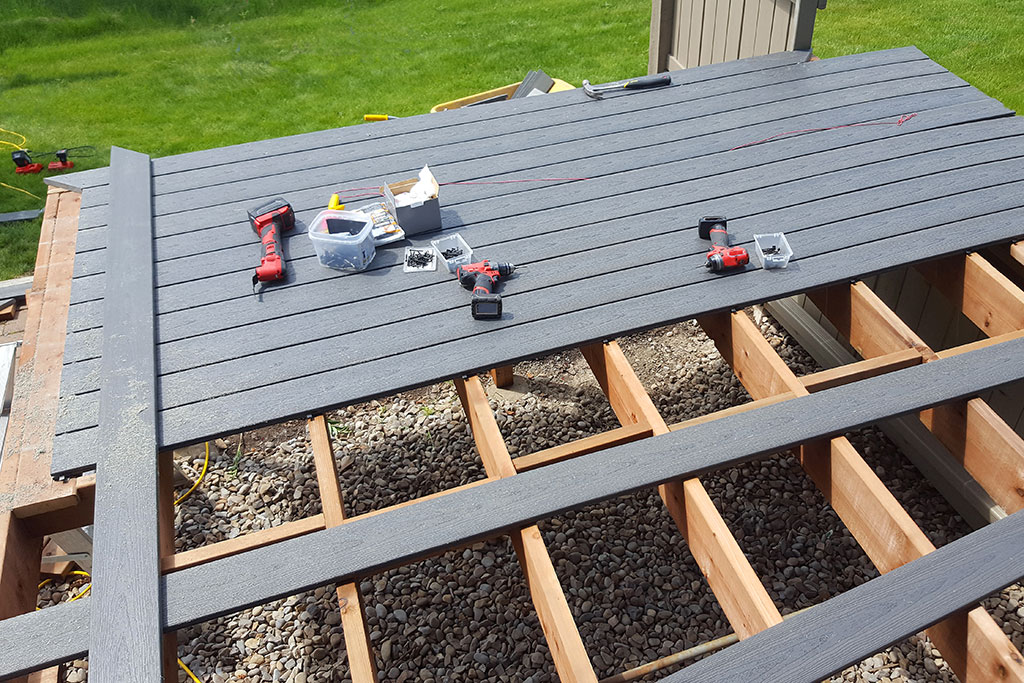
Material matters
If the above figures leave you raising your eyebrows, one way to help keep them down is by selecting your material carefully. Many options offer decent affordability without compromising beauty, practicality, or longevity, and some may even minimize your ongoing maintenance costs. Here are some of the best to consider along with the distinct benefits of each.
Composite
Built from a mixture of natural wood fibers and recycled plastics, this material resembles genuine hardwood and is available in a wide array of colors and textures—no staining or painting needed. It’s also on the lower end of the price range, costing an average of $17 per square foot. (Check your area for exact pricing.) You can choose from capped or uncapped composite, but note that the former offers a protective plastic shell for ultradurability.
Cedar and redwood
Naturally attractive, long-lasting, and insect resistant, these may be two of the greatest woods for a traditional deck. Though they can develop dents or other damage, they may still last for decades with consistent refinishing (approximately every three years). Further, cedar and redwood are more environmentally friendly than pressure-treated wood, which, despite being inexpensive and hardy, could expose you and your loved ones to harmful chemicals. You can expect to pay about $5 and $20 on average per square foot respectively for them.
Aluminum
Who says decks have to resemble wood? While aluminum may seem like a peculiar option and is a touch pricier than others (upward of $20 per square foot), its high weight tolerance, fire-resistant properties, and invulnerability to mold and pests make it one of the longest-lasting selections you could find.
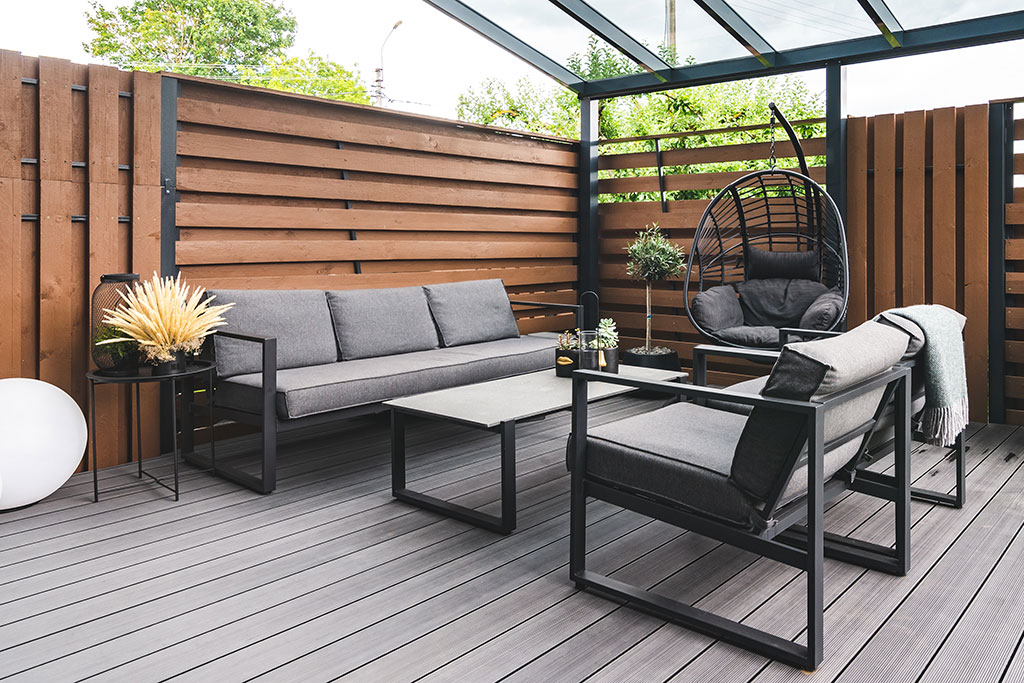
Style inspiration
The type of material you choose goes hand in hand with aesthetics, especially when paired with compatible details like furniture and landscaping. Use these visual concepts as inspiration to help you build a deck that perfectly suits your tastes.
Party-perfect venue
The ideal celebratory scene begins with a warm-hued wooden base. For the best setting, create several distinct conversation zones with their own railings, even varying the heights of each. Imagine, for instance, a circular dining spot that sits a few steps down from a grilling zone. Finish the look with comfortable furniture, potted flowers, string lights, and shade features like umbrellas to craft the optimal ambience for lively occasions.
Sleek setting
Does your home feature cutting-edge structural elements and interiors? Carry them to the outdoors with a contemporary deck design that lets quality materials speak for themselves. Opt for an aluminum or gray-composite deck with diagonal planks, and top it off with artful furniture and sparse decor, such as those from CB2 or AllModern, for enviable sophistication.
Rustic escape
For the vibe of a wild nature preserve right outside your back door, build a natural-finished or natural-looking wooden deck that extends the length of your home’s rear facade. Decorate it simply with Adirondack chairs and a hibachi grill to recreate the feeling of camping in the great outdoors. And to enjoy wildlife sightings from said seating, set up birdhouses and feeders out in your landscaping, then keep your binoculars handy.
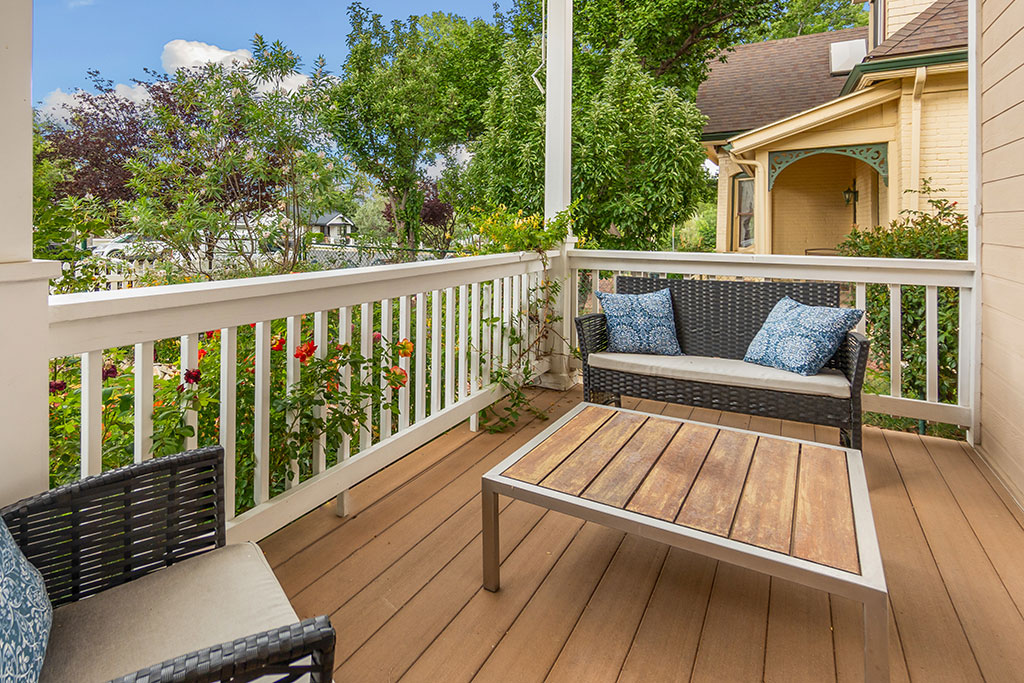
Your retreat awaits
Because every home, family, and budget are unique, no one-size-fits-all solution exists for building a beautiful backyard deck. To put together the most fitting design, look to your abode’s architecture and yard’s natural features for inspiration. Where can you position the structure so you can enjoy the best views around your house? Which materials or colors would blend naturally into your environment? Creating a deck that simultaneously stands out and pairs perfectly with its surroundings can result in a satisfying home feature. And if you communicate your financial limits to a contractor in detail, you can ensure that the results are well worth their reasonable investment.

